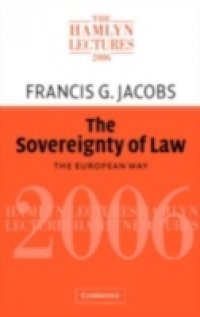Recently, the role of courts has changed dramatically. Not only do courts now have to decide cases between parties, they also often have to choose between competing fundamental values. Judges may have to balance the potentially conflicting interests of human life and human dignity; freedom of speech and the right of privacy; or free trade and the protection of the environment. The courts may have to circumscribe freedom of religion, and decide when religious dress may be worn. With the non-specialist in mind, and starting from the basic notion of the rule of law, this book explores how judges can and should address such issues. Both the European Convention on Human Rights and the European Union often play a decisive role, and the book points out both the advantages and the difficulties posed by this. Above all, it seeks to promote a more informed debate.

